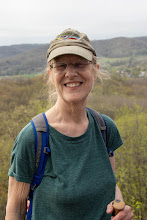 |
| Pixabay Image |
ALA Midwinter is always a time when I think of continuity, sustainability and how I can positively impact the health of my favorite division, ALSC. This is the time when the ALSC President-elect begins the appointments for chairs and members of many process committees. This link tells you about the process, has a volunteer form and let's you read about all the fabulous committees that are within ALSC.
My work as a Priority Group Consultant over the past two years for 11-13 committees and task forces has made this reflection at this time especially important. Keeping continuity strong from chair to chair and within the committees means a more smoothly functioning structure for ALSC. It also means that committees don't have to keep reinventing the wheel and instead can move ALSC, children's librarianship and services to children ahead at warp speed rather than turtle-pace.
We often volunteer for a committees and learn a ton and help accomplish alot together. But in my mind, equally important, is ensuring that the committee continues strongly. How can we do that?
Chairs:
Look at committee members and mentor/support strong potential leaders who might make a great next chair or co-chair. Is there someone who is organized, meets deadlines, is able to listen as well as talk? Do they have great ideas but also great follow-through? Do they seem willing to partner with others to get the work done? If you spot one or two people, work with them, show them the ropes and encourage them. Ask them if they might be willing to put their name in to be appointed next chair or co-chair (all appointments are done by the ALSC President-elect). Then email the President-elect and recommend that person.
Also consider people who would make committee members. Do you know people within the division who are willing to step up to serve? Do you know people especially from visible minorities within your library, system or state who would appreciate chance to be active in ALSC committee work? Talk to them to fill in a volunteer form AND drop a note to the President elect to let her/him/them know that you have a good potential committee member for them.
By thinking beyond your term to ensure a smooth transition, you help strengthen sustainability and continuity for the committee or task force.
Committee Members:
Consider your service not only as a time to pitch in and do stuff but as a time to learn stuff - including how to step up as chair. Chairs are never left to fend for themselves in ALSC. There are often co-chairs; an ALSC office staff liaison who works with/communicates with the committee, a priority group consultant to help navigate the work and organizational structure of ALSC and an engaged board who cares about your service. You learn leadership in a safe and supportive environment.
You also can use your networks to identify potential members or put the word out for more members just like chairs can. Think about diversity, equity and inclusion as you invite people. Encourage them to volunteer and drop that note to the President-elect!
Your recommendation can make a difference in helping people become committee members or more active in ALSC. Thinking not just of yourself but of how you can encourage others to serve is a powerful way to sustain the strength of an organization you care about.
So pass the baton and lift others up through your mentorship and support!















